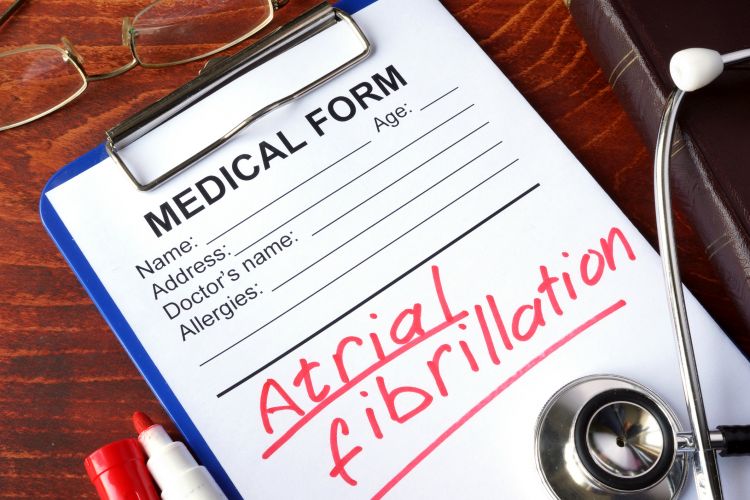
Atrial fibrillation (AFib) is a common condition of arrhythmia, which is defined as a problem with the rate or rhythm of your heart. This could mean your heart beats too quickly (tachycardia) or it beats slower than normal (bradycardia) and often in an erratic pattern. There are four types of AFib. Figuring out which type you have is imperative to finding the right AFib treatment.
Main Types of AFib
The four main types of AFib are: paroxysmal, persistent, long-standing persistent and permanent atrial fibrillation.
- Paroxysmal atrial fibrillation: You may be experiencing this type of AFib if you develop a sudden and rapid heart rate that lasts up to seven days and stops on its own.
- Persistent atrial fibrillation: When arrhythmia lasts longer than seven days, and your heart’s rhythm can no longer regulate itself, it is called persistent atrial fibrillation.
- Long-term persistent atrial fibrillation: If you experience symptoms of atrial fibrillation that last longer than a year and have not responded well to certain medicine and treatment, you may be experiencing long-term persistent atrial fibrillation.
- Permanent atrial fibrillation: This type of AFib cannot be corrected with medicine, ablation or other treatments. However, your doctor may be able to provide you with a treatment plan to ease symptoms and safeguard you against the possibility of stroke.
Treatment Options
AFib is the most common type of heart arrhythmia and is estimated to affect approximately 12.1 million people in the United States by 2030. Its prevalence has been a catalyst for new and evolving treatment options to ease symptoms and reduce the risk of consequential health problems.
Available AFib treatment includes blood-thinning medication, medicines to control heart rate and rhythm, surgery (ablation) and lifestyle changes. Heart Hospital of New Mexico at Lovelace Medical Center (HHNM) has invested in the latest innovations in technology, including the iCLAS™ and the Stereotaxis Magnetic System, to more effectively treat AFib in patients.
Cardiac ablation is a popular AFib treatment method often used when other medications have not worked. This procedure effectively burns (radiofrequency ablation, or RFA) or freezes (cryoablation) heart tissue to correct abnormal electrical patterns in the heart and correct your heart rate and rhythm. The team of cardiac electrophysiologists at HHNM perform the most atrial fibrillation and left atrial ablation procedures in the state, and have been able to treat some heart rhythm disorders that were previously considered untreatable.
If you’ve been diagnosed with AFib, your doctor will discuss what treatment, or combination of treatments, makes the most sense for you based on your age, lifestyle and type of AFib.
If you have reason to believe you might be experiencing AFib and would like to learn more about what type you have and what treatment options are available, call us at 505.841.1000, to schedule an appointment with one of our cardiac specialists.



